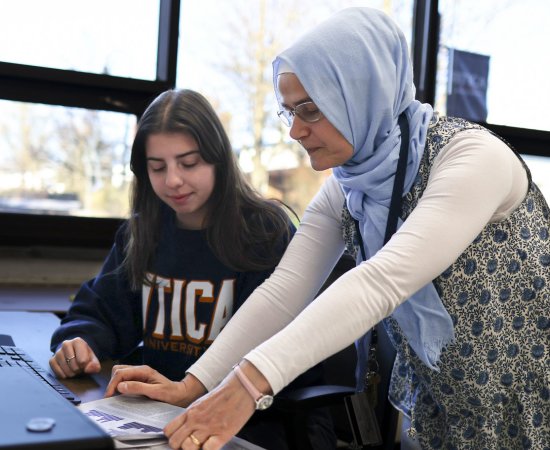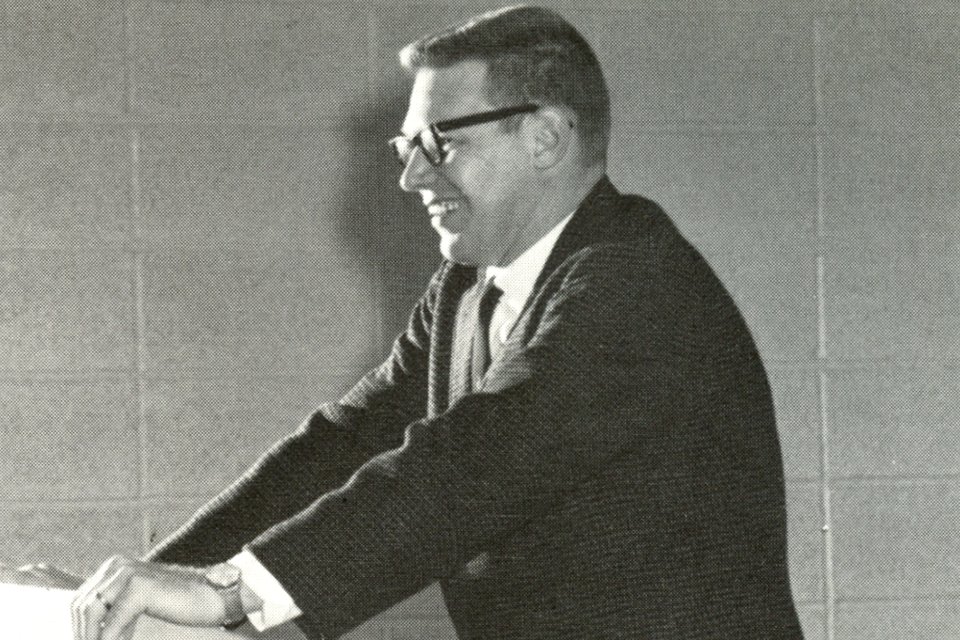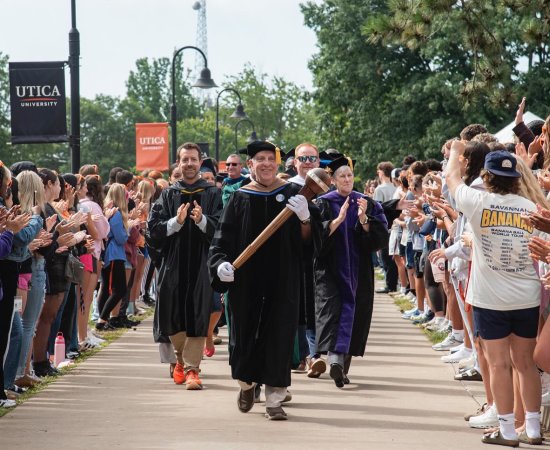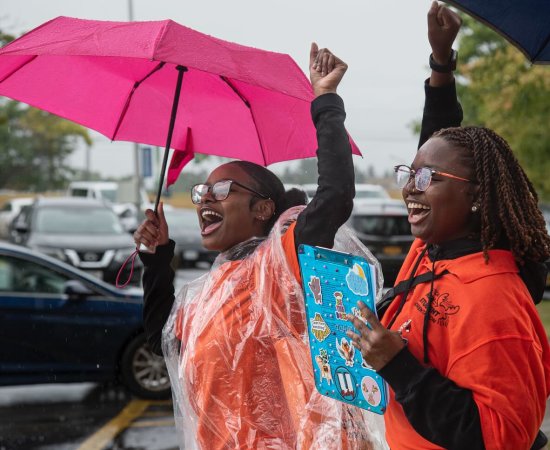
A Journalist and Professor Looks Back

"Before I interview anyone, I always make sure I’ve read about them, read what they’ve done, and can mention names, subjects, and show them I’ve done my research."
Jack Behrens has always been a storyteller. The UC Professor Emeritus spent more than 60 years working as a journalist, covering some of the biggest stories and personalities of the last century. The author of countless magazine articles and several books, Behrens also taught American history and journalism at Utica College for 32 years, where he shared his experiences and lessons with generations of aspiring writers in the classroom.
In his latest book, he does much of the same. In Recollections of a Journalists: A Collection of Personal Stories from Interviews, Behrens shares anecdotes from interviews with everyone from Presidents Ronald Reagan and Bill Clinton, comedian Bob Hope, the Doobie Brothers, Roots author and Behrens’ friend, Alex Haley, and more.
We talked to Behrens about the book, the secrets to a successful interview, and his take on journalism in 2018:
You’ve had a long and successful career as a journalist. What inspired you to write this book now?
My wife [Gertrude Behrens] has been instrumental in having me do this. She and my two stepchildren found some notes I had from old interviews, and they said, “These are prominent people. This is fascinating material.” Gert encouraged me to take a look. I thought about it, and I realized “OK, there’s a book in here.” I tried to be selective because I had almost 5,000 interviews, but these are the best of the best for me. Musicians, artists, authors, writers, and current editors.
In your experience, what makes a good interviewer?
Familiarity with the person is important. Too many journalists go too fresh to the material. If you don’t have any knowledge of the individual, they’ll hang up on you—and that’s happened to me. Before I interview anyone, I always make sure I’ve read about them, read what they’ve done, and can mention names, subjects, and show them I’ve done my research.
It’s clear from your stories that access is everything when it comes to interviewing powerful people.
Yes, and here’s a great example of that: In the early 1950s, Alex Haley, who I thought knew about everybody, didn’t know the jazz musician Miles Davis. He said to me, “I want to know how to get to this guy.” I went through my index of people I know in music and found out from two of my contacts that Miles Davis liked to go to Stillman’s Gym for boxing in New York. He thought of himself as a boxer. I thought that might be a good way for Alex to connect with him. Alex did him one more—he went to him and said he’d like to spar with him. Davis accepted it. And they got in the ring for three rounds. Miles won by decision, but the bigger thing was he lasted three rounds! After that, Alex got incredible access to Davis, and interviewed him at length. The interview was published in Playboy magazine in 1962.
Who have been your favorite people to interview?
It’s difficult to say because they come in so many varieties. One of the best, believe it or not, was a Ringling Brothers clown in the early ‘70s, Harry Sinclair. He was very sick; he had lost one arm and was about to lose his legs to diabetes. He was confined to the hospital but was convinced he had things to say and he wanted to talk to people. So he’d dress up as a clown and wheel himself to the children’s ward of Columbus Children’s Hospital. He spent several hours with the children, talking and laughing. I enjoyed learning about this incredible man.
You spent many years as a news reporter and photographer. What memories stand out most to you?
In 1970, I covered the Marshall University plane crash for the Associated Press. From that experience, I learned about putting your own emotions on hold. That’s hard to do. In the military I was a Stars and Stripes photographer and combat photographer during the Korean War. I hadn’t even dreamed of the kinds of things I saw there. Three days after landing in Seoul, I covered a firefight. I’ll never forget the Americans’ faces—the look of surprise on their faces. My photographs captured that.
How has journalism changed over the course of your career?
Well, the great thing about going into reporting today is that you’re going into a whole new world. I’ve had eight decades in reporting, and each one has been different. When I started, I was part of the so-called “silent generation.” We didn’t get half the truth. In the ‘50 and ‘60s, things changed dramatically. Editors would say “get the truth or don’t come back.” Now, the reporters don’t make the final decision on what the copy might be. Editors make those decisions, and every story is political to the editors.
Your book encompasses a lot of experiences and stories from various parts of your career. What was it like putting it all together?
I owe a lot to my family. I involved the whole family in the process. My daughters did all the work with getting photo releases and handling the legal aspects. My son and daughter-in-law did some copyediting. Gert, my wife, was awesome in terms of what she did for me. She kept me on target. Each book, for me, takes two years; I put everything I’ve got into it.
More Stories


High spirits, community kick-off 2025 Utica University Convocation

Rainy skies met with showers of smiles at Utica University Move-In Day
I would like to see logins and resources for:
For a general list of frequently used logins, you can also visit our logins page.
